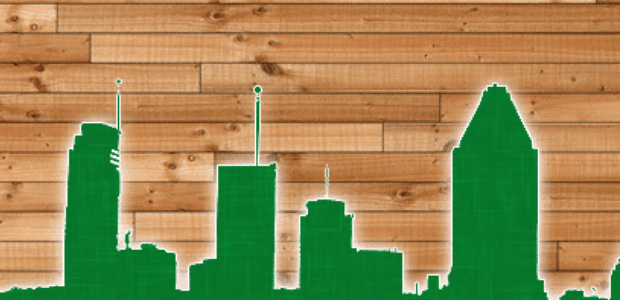
Alexander Aylett’s research examined how cities’ use of digital technology, citizen-sensors, and open data could allow local communities, government leaders and private businesses to manage urban areas more sustainable.
By Drew Bush
Geothink Co-Applicant Alexander C.E. Aylett passed away on July 23, 2016 from cancer. A beloved son, husband and father, colleagues also remember him for his warmth and passion. His research empowered urban communities to engage with sustainable development through the use of digital technologies and open data.
His wife Luna, their two daughters, Inara and Aurora, her father Richard and his wife Claire, and his two brothers, Chris and Andrew, survive him. A memorial service was held in his honor on Sunday, July 31st at the Alfred Dallaire Memorial Lounge located in Montreal, Quebec.
“It’s a real loss to the community of people who want smart cities to help improve sustainability and environmental issues,” Geothink Co-Applicant Pamela Robinson, associate professor in Ryerson University’s School of Urban and Regional Planning, said.
“Alex was trying to make these ideas stick between the [Massachusetts Institute of Technology] CoLab and through ÉcoHackMtl,” she added. “He really wanted to do research that mattered and that made a difference. And to try to bridge the gap between academy and practice. So he was pushing forward on new work.”
Aylett’s research interrogated how cities’ use of digital technology, citizen-sensors, and open data could allow local communities, government leaders and private businesses to manage urban areas more sustainable. One outcome driven by these new mediums for exchanging information has been an enhanced capacity of cities to use citizens and resources to strategically tackle issues such as climate change.
“Alex was a wonderful person—intense, caring, and insightful into how to derive practical political solutions to urban sustainability,” Geothink Head Renee Sieber, associate professor in McGill University’s Department of Geography and School of Environment, said. “He brought hackers, politicians, and environmentalists together to solve environmental and social problems through consensus and the pragmatic building of networks.”
Last February, Geothink spoke with Aylett about his work before writing an online article and podcast. We present previously unpublished excerpts of that audio interview here that capture the spirit of Aylett’s life and work. Find a written transcript at the end of this article.
Aylett joined the Institut national de la recherche scientifique (INRS) in July 2015 but had been actively pursuing research on these issues as a Banting Postdoctoral Fellow at MIT. Since 2009, he had published 12 papers with his most recent book chapter entitled “Relational Agency and the Local Governance of Climate Change: International Trends and an American Exemplar” in The Urban Climate Challenge: Re-thinking the Role of Cities in the Global Climate Regime (find a full citation at the end of this article).
He earned a master’s in comparative literature (2004) followed by a doctorate in human geography (2011) both from the University of British Columbia. At INRS, he was actively recruiting a new masters and doctoral student to join his research team. He firmly believed in partnership-based research, writing in his advertisements for students that “It makes for stronger research, and reduces the gap between research and action.”
His absence will also be deeply felt by the many communities where he led projects, particularly as the founder and co-director of ÉcoHackMtl.
“In a way, you could say his work already lives on by the fact the he was a part of a range of different stakeholders that were looking for ways to innovate using open data,” said Jean-Noé Landry, executive director of Open North. Landry collaborated closely with Aylett on several projects including ÉcoHackMtl and had supervised one of his graduate students at Open North.
“The values that bind us together are those that really kind of enable us to find strength in achieving our collective vision,” Landry added after describing values he shared with Aylett about open data and better governance. “And so, the fact is that we need to have leaders that step up, and put this stuff forward, and put in the time, and drive change. But we’re stronger when we’re empowering those around us.”
“That’s really at the core of the open data community. So, yes, we are losing a leader but I think his leadership was such that he was able to bring in more people to talk about the potential of data, to talk about potential innovation, to talk about the seriousness of urban sustainability issues and the potential of open data to resolve those issues. I think carrying that vision forward—obviously let’s not forget him. But we share the goals he advocated.”
Friends and family of Aylett have requested that instead of flowers, those wishing to show support may instead contribute to a fund to support the family’s immediate needs. Find it here: https://www.gofundme.com/2gbuq7w
Book Chapter Citation
Aylett, A. (2015) “Relational Agency and the Local Governance of Climate Change: International Trends and an American Exemplar.” in The Urban Climate Challenge: Re-thinking the Role of Cities in the Global Climate Regime. Eds. Craig Johnson, Noah Toly, Heike Schroeder. (Routledge). 12 pages.
TRANSCRIPT OF ORIGINAL AUDIO
[Geothink.ca theme music]
“Alexander Aylett, I’m a professor of urban sustainability governance and innovation at the Center for Urbanization, Culture, and Society of the National Institute for Scientific Research or the proper French title is Institut National de la Recherche Scientifique in Montreal.”
“It’s really tricky to address a lot of the environmental impacts that are spread throughout the urban community. Right, sort of what people call collective action problems. And one of things that new technologies are very good at is building networked publics, right, coalitions of interest around—well I mean around all kinds of things. Around, you know, celebrity gossip and, you know, plastic surgery, you know, the biggest plastic surgery disasters. Ok, on the one hand fine. But also around much more meaningful stuff. Like green space. Like transit activism. Like creating community networks that are able to design and manage complex things. Like if you want to start talking about how you can manage a community energy transition, having good online platforms that are a tool that’s used in public mobilization and engagement strategies makes it possible to be more effective at the local level. But also then to scale up quite well from local action to action in other local areas either in the same city or in other cities.”
“I have a great example of that. There’s the 596-acres project. Do you know about it? It started in Brooklyn. And it’s a perfect example of how digital tools, open data and, then, a strong community mobilization that also works in the real world. Right this is not a 100 percent digital initiative. And I think that that’s why a lot of things fail. Is that they think that that digital is going to do all the work for them. But this is an example of how something can be very successful bridging digital and physical reality.”
“And what they do is that they have created an online map of all the vacant municipally owned land—well initially it started off in Brooklyn in New York City. And then a platform, sort of imagine a Facebook of sorts, which allowed people to say, ‘Oh yeah, I live around lot 77 at the corner of 5th and 22nd, and I’ve walked by that empty gravel lot my whole life. And I would love it if we could have a community garden there.’ And you post that. And then someone else who sees that lot and sees oh look someone else is already interested in doing a project here. ‘I wonder what it is?’ And they sign up too.”
“And so quite quickly you get clusters. You get networked group of local residents who might not know each other and who often don’t know each other otherwise that form online. But then meet in person and using data that they have taken from the New York City open data portal can identify which part of the municipality they need to contact if they want to propose a project—a citizen project to transform vacant land into a community asset. Whether it’s a park or a garden or, you know, some other maybe a market-space or that kind of thing.”
“And the stories that are coming out of that are interesting because they show that people will have walked past this space, some of them for 25 years, and always thought to themselves “ugh” we could do something so cool here if only I had some people to do it with me and I knew who I should contact if I wanted to get things done. And it’s another example of reducing barriers to action by providing access to just really key, strategic information.”
“So that’s what the open data does, that’s what the online portal does. It puts people in relationships with other neighbours but also with the city in a way that makes it possible to coordinate groups of people to start physically transforming their surroundings. And I think we’re going to see that same model applied to other tricky things.”
“Like if you’re trying to—well in Montreal for example—seven percent of our emissions, more or less, come from people who heat with fuel oil in their homes. And if you as an individual homeowner want to transition to electric heating or say geothermal or something more environmental, you can do that. But it’s a complex process. It’s expensive. And a lot of people begin the process of reflection and then decide not to just cause it’s all too daunting.”
“But in the same kind of way you could use data on energy consumption in neighbourhoods. Create a platform where residents who are all interested in shifting their homes onto a more sustainable fuel source could create groups and then collectively do a call for proposals. So that they could bid—so the companies could bid not on just one home but one 20 homes, for example, which would bring down the costs, which would simplify the process. And it would mean that instead of doing homes on a sort of a piecemeal fashion, you would be doing them on a community-by-community basis. And shifting the whole energy systems of a community.”
“And could you do that without the technology? Well, yeah, sure. You could have a leafleting campaign and you could have community volunteers that go out and knock on doors. And, actually, you’re probably still going to need all those things. But the adding on of layers of data and of cartography and of a good online interface and all that, I think just empowers people to do all that work more effectively and, then critically, for people elsewhere in the city to see what’s happening. And to understand how they can do something similar in their neighbourhood. And that’s traditionally sort of the Achilles heal of local action—which is that it’s hyper-local.”
“But new digital technologies give great local ideas legs by creating tools that are easily shareable and by creating inspiring examples that can travel. That can travel 10 blocks away or that can travel, you know, 100 km away, or can travel to the other side of the country. And so I think that example of effective local action and the speed at which things can travel and scale up is another exciting facet of the new technologies that we are seeing.”
[Geothink.ca theme music]
[Voice over: Geothoughts are brought to you by Geothink.ca and generous funding from Canada’s Social Sciences and Humanities Research Council.]
###
If you have thoughts or questions about this article, get in touch with Drew Bush, Geothink’s digital journalist, at drew.bush@mail.mcgill.ca.
